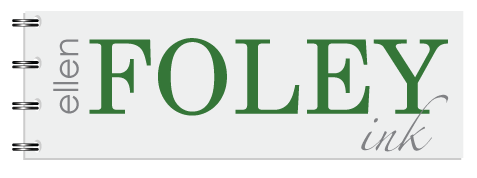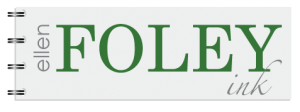
Our Services
Foley Ink works with businesses in need of strategic marketing plans, social media strategy, branding, writing services, and media relations.
Larger companies seek Foley Ink’s media relations expertise to jumpstart awareness campaigns or confidently prepare for major announcements. Increasingly, larger businesses seek thought-leadership writing in the form of ghosted op-eds, contributed articles, or white papers.
Our services often involve:
- A comprehensive marketing plan,
- Tactics for employee engagement,
- Messaging consulting,
- Writing services,
- And/or a branding refresh.
Foley Ink excels at “moving the dial,” as one client recently said.
View a video of Foley Ink’s work.
Marketing Plans
Ellen Foley’s expertise grew through marketing efforts when she worked for two large institutions:
- WPS Health Solutions, a $1 billion health care government contractor with health insurance sales, where Ellen led a two-year brand refresh.
- Madison College, also known as Madison Area Technical College, where Ellen led a successful referendum effort to raise $134 million to update the campus.
In 2019, Ellen created a step-by-step playbook that a CEO or marketing leader can share with a team that is raring to go.
Media Relations
Companies unfamiliar with storytelling might panic when they get ready to share their messaging with the media, thought leaders and possible investors.
Not with Foley Ink as a partner.
For individuals, Foley Ink offers confidential crisis communications services for clients who need to quickly reach out to media about a sensitive topic.
For companies, Foley Ink makes sure it shapes an enterprise’s information for traditional and social media in “newsy” content that reporters and editors can use prominently. Whether a mainstream publication, a trade website, social media, or an e-newsletter, the media needs expert help from communicators like Foley Ink to get it right in these days of journalists’ scarce resources.
Thought Leadership
Foley Ink offers ghost-written articles and opinion articles that make strong points backed by facts, are memorable and reflect a leader’s voice. We also work fast and can turn an assignment within hours in an emergency.
Client Stories
Edgewood College
Messaging consultation, writing services and media relations

Edgewood College in Madison, WI in 2019-20 needed to clarify its message internally and externally during a financial crisis, staff reduction and resignation of the college president.
Working with the interim college president, Foley Ink placed the following op-ed in the local newspaper to help students, parents, alumni, staff and faculty understand the vision of the new president.
Edgewood College responds to birth dearth
Ellen also advised on internal communications with faculty, staff and the board of directors, particularly in the search for a new president.
Dairy Farmers of Wisconsin
Strengthening reputation with trade journal op-eds

The Dairy Farmers of Wisconsin (DFW), a marketing services agency funded by state farmers, sought to strengthen support from the dairy industry with an increasing number of op-eds, mostly submitted to Hoard’s Dairyman, the national publication for the dairy industry. Ellen Foley wrote several op-eds in 2019-20 to advance the organization’s goal.
The COVID-19 Crisis changed up the messaging with a quick pivot by DFW to get excess dairy products to food pantries. See link to Ellen’s work below.
Dairy Farmers of Wisconsin send support during COVID-19
Ellen also worked with DFW editors, farmers and advocates to craft several op-eds for mainstream publications throughout Wisconsin and Minnesota during a National Farmers Day campaign.
The Bruce Company
World-class landscaping and a unique garden store
The Bruce Company has worked with Ellen Foley Ink on several projects, the latest in 2021.
The premier southcentral Wisconsin garden store and landscaping company hired Foley Ink during the past decade for several business transitions including a merger, an acqusition and the announcement of a historic development on its Middleton, Wis. site in 2021.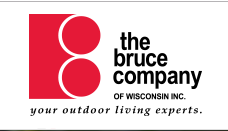
Foley Ink’s strategic marketing and communications plan coordinated employee communications such as QandAs, press releases, and successful media placements in mainstream publications and the trades. The company was happy it could share The Bruce Company’s brand story of quality and family values trhought the country.
Call us at 608-444-7065 or email ellenfoleyink@gmail.com for more information. Or read more case studies below.
WPS Health Solutions
Re-branding a 70-year-old company
WPS Health Insurance–a 70-year-old, 2,000-employee company with five sites in three states–raised the question in 2014 whether the company represented the brand that consumers held in their heads. While the company was founded as a health insurance sales company in 1947, the company’s government contracting divisions at that time brought in most of the revenue. Their customers were the Centers for Medicare and Medicaid and the U.S. military.
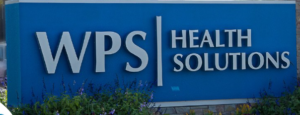
After extensive research, the executive team began a two-year-long conversation about how to refresh the brand of the changing company and whether to give the company a new nickname that more accurately reflected the majority of its activity.
In 2015-16, the Corporate Communications Department, led by Ellen Foley in her role as senior vice president, began to develop a family of brands with a mother brand, WPS Health Solutions, and five sibling brands. The board of directors approved it and the hands-on work began.
Employees needed education on why executives recommended the change. We offered presentations, polo shirts with the new logo, a Values Project, forums, and leadership town halls, intranet articles, contests, and events.
We explained that the brand is the customers’ emotional attachment to our company, and it influences their decisions about whether to recommend our products. Our mantra became: a brand is a promise to the customer; a brand is not a logo.
We swapped out the old logo on hundreds of documents, trucks, stationery, and signs outside and inside. We painted walls and the parking ramp the exact shade of blue we picked for the brand color. We created a group of Brand Champions who helped the communicators find other changes that had escaped us.
We made evocative videos for each brand, presentations for the board of directors, and the leadership teams. We started a Values Project to teach us all how to behave into the brand. When we rolled it out at an all-employee meeting, it went smoothly.
In the year following, WPS Health Solutions won many prizes for the brand refresh, particularly the videos.
View award-winning WPS videos.
Reach Dane
Hands-on work for early education
Foley Ink donated services with its Rippe Keane Marketing partner, Scott Rippe, to rebrand one of Ellen’s volunteer organizations, Dane County Parent Council. Like WPS, the name fit another time in the agency’s life. Now it was a preschool provider for underserved children in Dane and Green County with a stellar Head Start program.
After six months of work, the board of directors and the staff were elated to great their new brand. Welcome, Reach Dane.
Forward Health Group
Great press releases create awareness
In 2018, Forward Health Group, a relatively new company in health care technology, asked Foley Ink for services to increase awareness of its innovative data analysis product that helps doctors provide better care. Forward Health Group’s sector is called population health.
The most successful effort was a set of news articles pitched to web publications that are popular with thought leaders in population health.
 A Forward Health Group staff member, Barry Wightman, guided Ellen as Ellen wrote a complicated press release and they crafted two story ideas to leverage good results from an industry review.
A Forward Health Group staff member, Barry Wightman, guided Ellen as Ellen wrote a complicated press release and they crafted two story ideas to leverage good results from an industry review.
In January 2018, Forward Health Group received high rankings from a Research and insights firm called KLAS Research™, which publishes an annual report. In the past, the Forward Health Group staff had written press releases on this annual event, but few outlets picked up the story.
In late December 2017, Ellen wrote the detailed press release focusing on the results so that it could be sent to the media quickly after KLAS announced its findings. This helped Forward Health Group catch the news cycle. Ellen also called reporters to remind them of the Forward Health Group angle.
The positive stories about Forward Health Group’s rankings appeared in at least two popular publications: Health IT Analytics and MedCityNews. Friends of the company began posting the story to their LinkedIn profiles and emailing Michael Barbouche. Our client was very pleased.
To leverage that good news, Ellen and Barry produced two subsequent stories for two different publications. Barry, who had relationships with the editors and reporters, secured the story placement.
The first was a Question and Answer article with the Forward Health Group Founder Michael Barbouche.
https://histalk2.com/2018/02/13/histalk-interviews-michael-barbouche-ceo-forward-health-group/
The second was an interview with Dr. James Hotz of Alabama, a longtime user of Forward Health Group’s products. https://www.healthcareitnews.com/news/primary-care-group-uses-population-health-it-help-prevent-colon-cancer
The most interesting tactic in these successful placements was that Barry and Ellen interviewed the subjects of the stories and then wrote the articles. They submitted the articles to the editors, who added a few comments or reduced the length.
This taught Foley Ink that going the extra mile to help busy editors and reporters by writing copy that is high quality and easy for a publication to digest can yield magnificent awareness for your clients with thought leaders.
Barry and Ellen created a newsy story that reflected well on the client. Then the two experts cleverly amplified that in the follow-up stories.
Madison College
College wins with integrated media
Challenge: Madison Area Technical College, which prefers to be called Madison College, began to put into action its strategic vision of “transforming lives, one at a time” in 2008 when its enrollment was 40,000. Part of its plan was the update the campus’s 1970-era buildings and the building of updated facilities for nursing, manufacturing studies, and law enforcement officer training.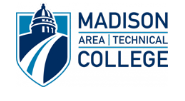
The college board decided it would go to referendum in the 2010 general election for $134 million to fund the campus of the future. The previous referendum occurred in 1974.
A referendum is essentially a vote on whether the 12-county area property owners agreed to increase their taxes to pay for the updates.
Spirits were high in 2009. However, the board and most of the community did not realize that by Election Day, the effects of the Great Recession, barely noticed in 2008, had hit hard. The message and campaign leadership needed to be strong enough to convince voters to spend more money on the college in hard times.
Ellen Foley was the executive leader of the referendum. The lessons she learned gave her the confidence to start the predecessor to Foley Ink, Foley Media Group, in 2011.
Solutions: Clever use of integrated media channels–including the relatively new Facebook and Twitter–on a very tight timeline to avoid undue opposition, led to the referendum being approved by 60 percent of voters to the surprise of everyone.
Dubbed the Smart Community campaign, we decided in early 2009 on a consensus-oriented approach that reached out to all corners of the college.
Faculty agreed on a solid call to action: more training for jobs.
A small team of employees in the college’s communications department developed a succinct elevator speech that read:
“This November, voters will find the Madison College Smart Community plan on their ballot. It’s a $133,770,000 plan for new facilities, renovations, and upgrades to meet the increasing demand of local residents who need affordable education and job training.
“Madison College is considering this now because student enrollment and waiting lists are at all-time highs, while interest rates and construction costs are at all-time lows.
“This expansion will provide an opportunity for more students to learn in high tech classrooms that will prepare them for the increasingly complex jobs that keep out community running.
“The property tax impact on a home valued at $245,000 will be $33.10 per year, or $2.74 a month.’’
Folders, videos and other collateral equipped college leaders and supporters to educate voters about the issues. In Wisconsin, college employees are not allowed to advocate yes or no. We attended more than 100 community meetings.
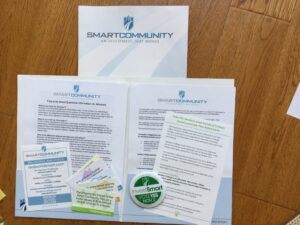
Meanwhile, another small group of social media pioneers fired up the college’s Facebook with content important to students and to our surprise, the students began talking to us and each other about the referendum on the newsfeed.
We held contests to increase engagement. Despite the fact that few students at the time had smartphones, we recorded 1 million impressions spurred by students with more than 500 friends who shared the college Facebook messages.
Analytic tools were not as sophisticated as they are today, and consultants estimated that the Facebook effort likely garnered 5 million impressions.
We launched a Twitter campaign that allowed participants to put their heads on superheroes bodies to become “college heroes.” The novelty tickled the technology students at the college. Faculty in the marketing classes advised us on the new techniques.
Late in the campaign, we created an online forum called the FutureofMadison.org. Seven students would win partial scholarships for the best ideas on how to improve our community.
We also held a ceremony to bury a time capsule and produced many smaller events that brought media into the college.
We used email to survey community leaders as a tactic to educate them on the issues and to intrigue reporters, who wrote stories about the unusual action. We sent weekly emails to employees with evocative subject lines. We obtained a public email list and sent messages to more than 400,000 University of Wisconsin-Madison alumni asking for their support in this higher education effort.
We realized early on that the website was key. We drove our audiences on Facebook and on email there, where passionate blogs and other content changed daily.
By the end of the campaign, the communications team measured an increase of 70 percent in earned media from the previous year. It showed that increased awareness of the college spread across our district.
The media coverage was superb. Ellen visited all media outlets in the 12-county regions, including the suburban papers. All of them endorsed a yes vote for the referendum.
The college won a national award months after the election for the campaign messaging and success.
Pres House
Turning Negative Press into Positive Press
Challenge: The Pres House, a University of Wisconsin-Madison campus faith group, faced a 2012 proposal from the city council that would have dramatically affected its finances.
Solution: Foley Ink, then known as Foley Media Group, advised the group’s leaders to create messaging around the organization’s history as a “good neighbor” to the campus and city. We also suggested the faith group focus messaging on its core values of fairness and justice.
We created talking points and prepared a press release around the good neighbor theme in case the media took notice of the city council action, which was unexpected.
The media surprised us, and we coached the pastor to respond when the media called for comment late one Sunday. The pastor was able to share the organization’s story confidently and engage a reporter who was interested in faith issues.
With the press release and other documents made available to the reporter, the paper published a short but fair story that gave the faith group a prominent press placement and a new relationship with a reporter impressed with the church’s preparation.
Pres House’s decisions led to top of the Local Section coverage and the upbeat blog posting by a Wisconsin State Journal reporter.
Pres House’s decisions led to top of the Local Section coverage and the upbeat blog posting by a Wisconsin State Journal reporter.
Measurable success: The media featured Pres House in balanced coverage
in print and online news stories about the city council action. The issue captured the imagination of a reporter who wrote a subsequent blog with very favorable results for the faith group. The central quote in the news coverage from the prepared pastor was, “We want to be good neighbors,” (the pastor) said. He was also quoted as saying that “core values of fairness and justice” prompted it to take the action with the city council. These two key messages were the goal of Foley Media’s contract.
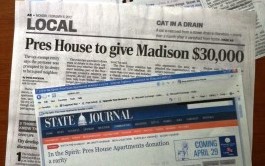
 UW Morgridge Center for Public Service
UW Morgridge Center for Public Service
Awareness Campaign for UW Volunteers
Challenge: The Morgridge Center for Public Service, a University of Wisconsin-Madison center for student volunteers, could no longer support a key transportation program for student volunteers in 2012. A healthy endowment at one time could pay the bills. However, dramatic increases in student involvement outpaced funds from the endowment. The university center had to overcome the myth that it was well funded. It needed to raise $60,000 in four months.
Solution: Working with the center’s director, Foley Ink, then known as Foley Media, wrote a case statement for fundraising. The statement helped staff and leaders understand the tremendous growth of the center and its funding challenges.
We then helped the center director target potential donors and advised on a messaging strategy that included a series of breakfasts with community VIPs and media leaders. Press releases about events became more professional and distribution increased. The center staff began initial efforts to leverage events and awards for fundraising.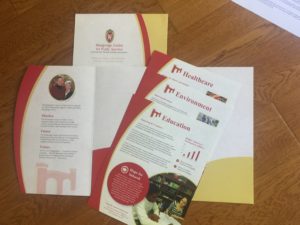
Foley Ink led the effort to professionally produce a folder that housed evocative fundraising appeals keyed to innovative programs.
The message to community VIPS was that the Morgridge Center was following best practices and gaining momentum in fundraising and awareness.
The key message to the campus and city communities was that without support, vulnerable children and adults would lose services provided by UW-Madison volunteers, who would no longer have transportation to far-flung but needy sites.
Measurable success: The center director received about $60,000 in funding just before the deadline. Two major media outlets, the dominant newspaper, and website in the region and the city magazine wrote supporting editorials or columns about the effort. Staff learned how to create relationships with the media.
In more recent years, Foley Ink had relied on digital materials in fundraising and awareness campaigns. Even in 2012, these expensive and exquisite folders sent the message to VIPS that the center valued them. Foley Ink likely would not recommend the same tactics in post-Recession Midwest projects.
©2020 Ellen Foley Ink
https://foleymediagroup.com/about-ellen/experience/
